Where are the main sources of Chinese coffee beans? Yunnan Coffee Flavor Characteristics Yunnan Coffee Bean Taste Description
When it comes to the cultivation of coffee beans in Yunnan, it actually has a long history. In the 30th year of Guang Xu, that is, AD 1904, French priest Tian Deneng was sent to Yunnan to preach. He went to Zhukula Village, a remote village in Binchuan County, Dali City, Yunnan Province.
The name of Zhukula village comes from the language of the Yi nationality, a local minority. If translated into Chinese, the meaning is close to "come around", which means that the local road is difficult and particularly tortuous. So Zhukula Village has been a remote and poor mountain village since ancient times.
Due to the inconvenience of transportation at that time, in order to facilitate himself and other missionaries to drink coffee, after the church was built, Tian Deneng personally planted coffee trees in the corner of the wall. (this is the first coffee tree with historical evidence in Zhukula Village, Yunnan Province)
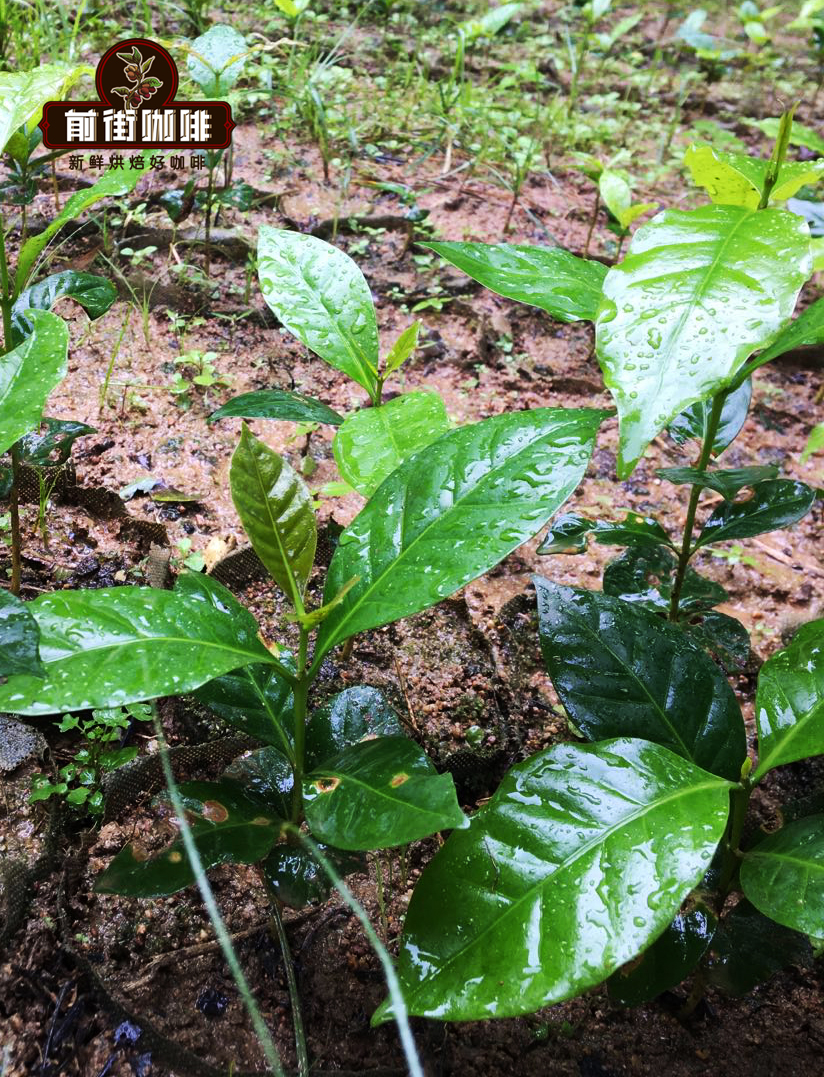
Major coffee producing areas in China
Coffee beans are generally suitable for planting between the Tropic of Cancer and the Tropic of Cancer, which we call the "coffee belt". Just right, the west and south of Yunnan Province are located between latitude 15 °N and the Tropic of Cancer. At the same time, most areas also have high elevations needed to grow and produce coffee, and the topography is mainly mountainous and sloppy. And ups and downs, fertile soil, sufficient sunshine, rich rainfall, large temperature difference between day and night.
The taste of coffee beans is mainly affected by three factors: origin, variety and treatment method.
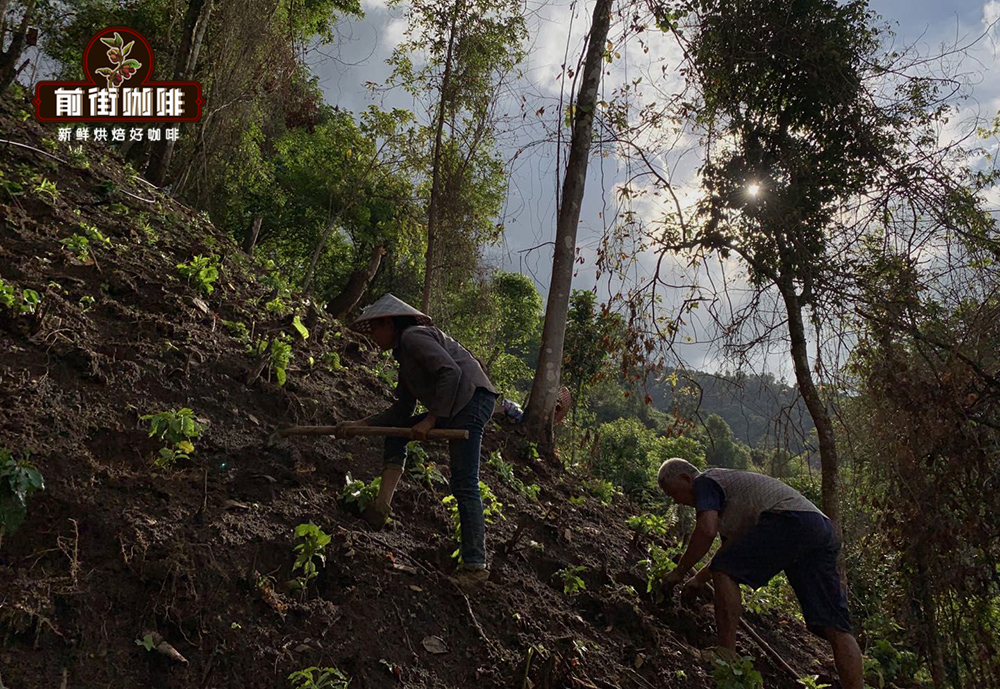
Introduction to the handling of coffee beans in Qianjie
Coffee is a kind of crop, and the coffee bean we usually see is the seed part of coffee, and the way coffee is handled refers to the method of taking coffee beans out of coffee fruit.
Sun treatment
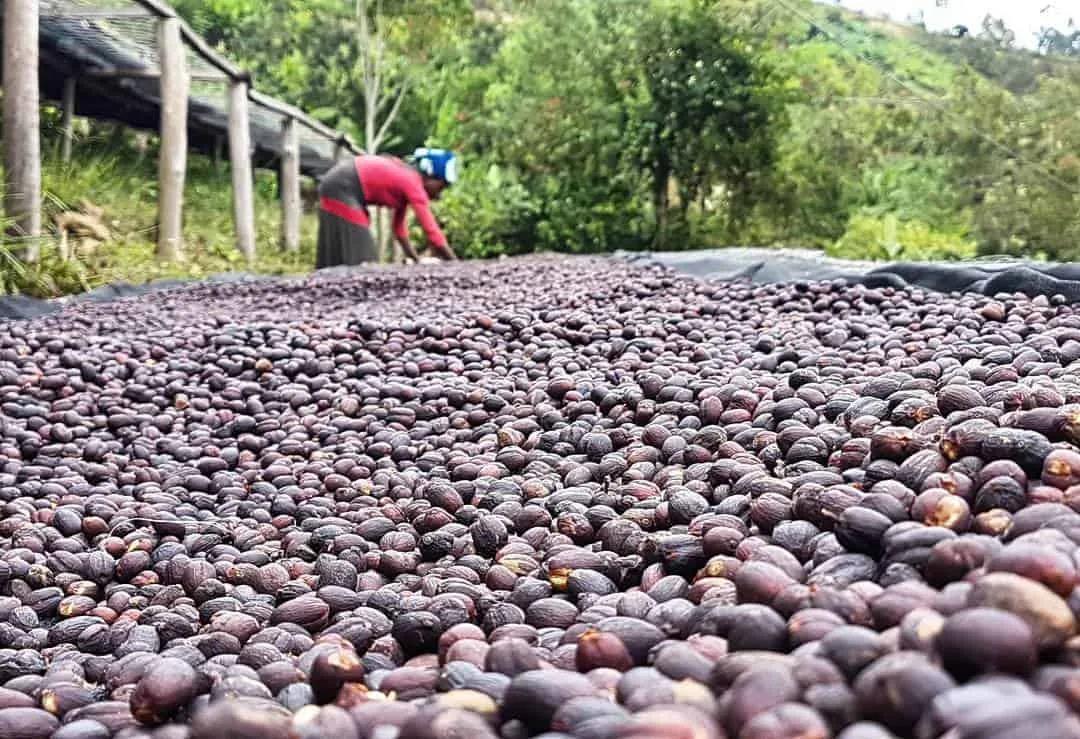
As the oldest way to treat coffee beans, it can be summed up in four words: "sun-dried and peeled". But it's not as easy as you think to do a good suntan treatment.
Coffee fruit should be processed immediately after picking, first screening, flotation is one of the commonly used screening methods, the screened coffee fruit will be dried in the sun.
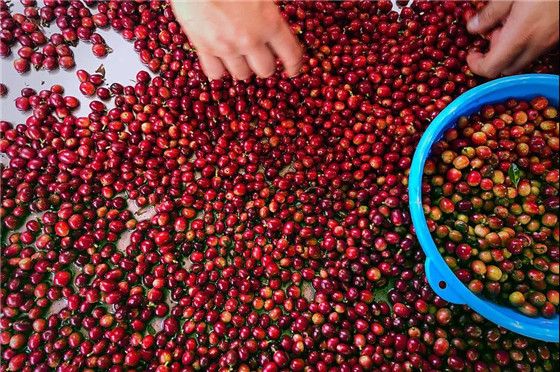
Screening
The time of drying depends on the weather, which usually lasts up to four weeks, and the completion sign is that the moisture content of the coffee is reduced to about 11%. Then use a machine to remove the dried coffee pulp, peel, pectin and other parts.
Washing treatment method
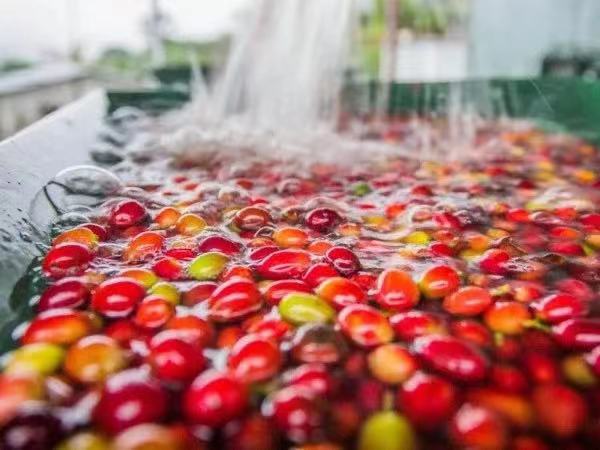
Due to the high average altitude of coffee grown in Ethiopia and the shortage of water resources, the earliest and most traditional method of treatment is solarization. However, due to the rough process, the taste of the coffee is too concentrated and the cleanliness is not high.
In 1972, Yejia Xuefei introduced water washing treatment from Central and South America in order to improve the quality of coffee. Subsequently, the jasmine fragrance and lemon and citrus notes of washed Yega Xuefei coffee beans became the representative of African boutique beans and became popular in Europe and America. And water washing treatment has gradually become the mainstream of Yejia Xuefei production area.
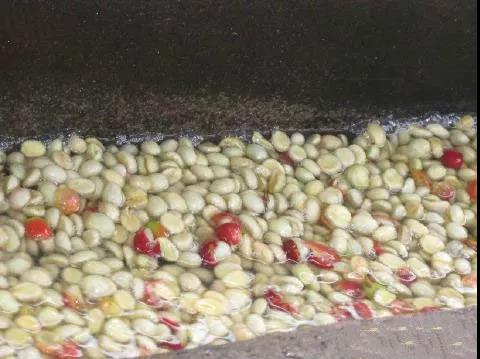
As soon as the coffee fruit is picked, it will be sent to the washing plant for treatment.
First of all, coffee fruits are similarly floated in water to select coffee fruits with sufficient density and better quality. Then the coffee fruit will be used a machine to remove the peel and pulp. At this time, the coffee bean is also covered with a sticky pectin layer. The processing plant will put the coffee bean into the fermentation tank for fermentation and use the power of microorganisms to decompose the pectin layer. The fermentation time varies from 24 to 48 hours, and the fermented coffee beans will be washed repeatedly with clean water. The aim is to wash away the decomposed pectin layer and the residual pulp.
Finally, the washed coffee beans are sent to dry. Unlike the sun treatment, which retains all the pectin layer of the pulp, the water content of the washing treatment is much lower than that of the sun-treated coffee fruit because it removes the pulp, peel and pectin. So the drying time can be reduced by more than half, depending on the weather, the drying time is usually about two weeks.
Qianjie Coffee Yunnan Coffee Manor Coffee beans
There has always been a Yunnan washed iron card Huaguoshan coffee bean in the bean list of Qianjie coffee. In this year's 2021 new Yunnan coffee season, Qianjie processed a small batch of Yunnan sun iron pickup coffee beans. Because the quantity was small, Qianjie put them in the event as a "limited gift" for everyone to taste!
By the way, baristas of Qianjie Coffee often share this coffee bean of their own tanning iron pickup truck in the store as a trial drink, giving it to different guests to taste fresh.
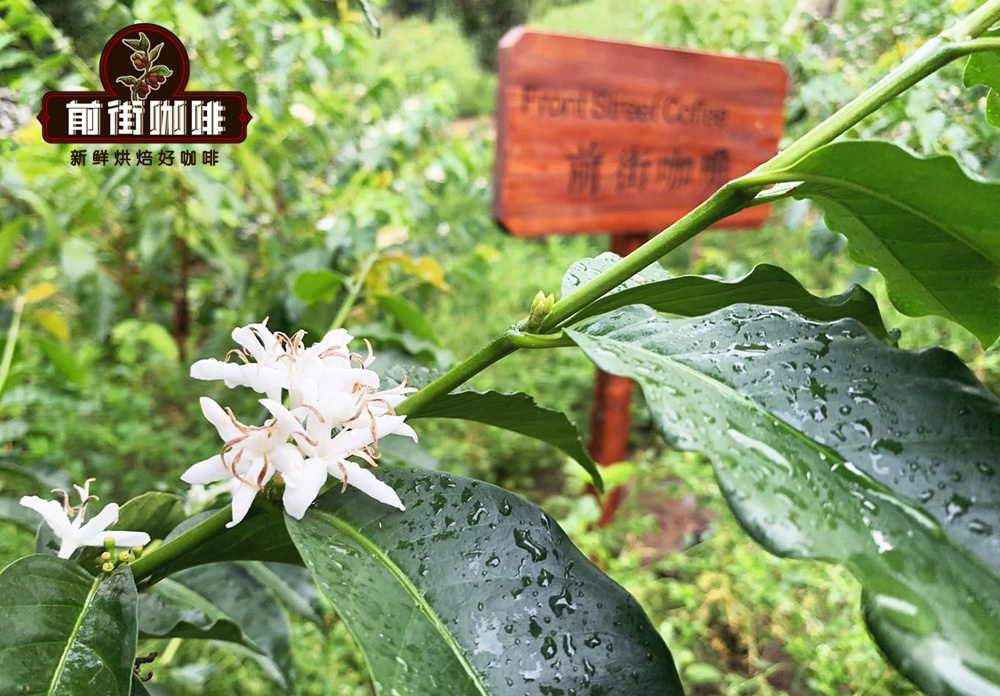
Qianjie Coffee Yunnan Coffee Manor
Nowadays, Yunnan coffee has more choices in the way it is handled. In terms of details alone, a variety of different treatments can be developed, such as adding steps to the process of anaerobic fermentation.
We will describe that the coffee beans treated with water wash taste cleaner, while the coffee beans treated by the sun have more fruit flavor.
But baristas of Qianjie Coffee believe that the traditional coffee treatment (that is, washing and tanning) best expresses the most basic taste of a coffee-producing country and coffee-producing area. Because in the front street coffee bean list, there will be a lot of washed beans, such as Ethiopia, Panama, Colombia and so on.
Baoshan, a coffee producing area in Yunnan, China
Baoshan, Yunnan Province is located in the low-latitude plateau, due to the special geographical location, formed a "one mountain is divided into four seasons, ten miles of different days" three-dimensional climate, such a climate is very suitable for growing coffee. It can be said that the quality of coffee grown here at the highest altitude is comparable to that of Jamaican Blue Mountain coffee. Here, it is also rich in the world's most expensive Kopi Luwak.
It has been more than 60 years since Baoshan began to grow coffee on a large scale as early as 1952. The area already has 5000 mu of coffee park, which is the best coffee producing area in Asia. Statistics show that China exported 104900 tons of coffee in 2017, with an export value of US $646 million.
Among them, the coffee output of Yunnan Province reached 136000 tons, accounting for more than 95% of the national coffee output, and the export volume ranked the highest in the country, at 60700 tons. Coffee industry is also the most sound and mature industry of market economy in the leading industry of Baoshan municipal government since the founding of New China. In order to better develop this industry, Baoshan has made a variety of attempts in this regard, including the launch of the Yunnan Baoshan Coffee World Project.
Baoshan area has a long history of growing coffee, and it is recognized as the best small-grain coffee producing area, and it is one of the coffee producing areas with good coffee quality in the country and even in the world.
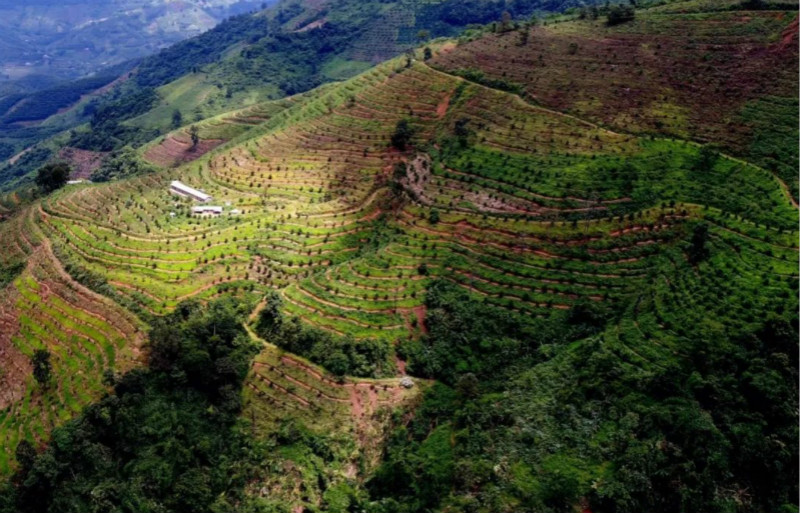
However, since the output of the tin card variety is very low, only 1/3 of that of Katim, that's why the price is more expensive. At the same time, tin card and bourbon are also very easy to get rust, which is one of the reasons why farmers are reluctant to grow Arabica.
The output of iron pickup and bourbon is low and easy to get sick, and the cost of management and protection is high. it takes longer to explore, not to mention whether it can form a unique flavor. On the one hand, curry farmers do not have a sense of fine coffee. On the other hand, even if you know it, it will take a few years to cut down the old tree and replant it.
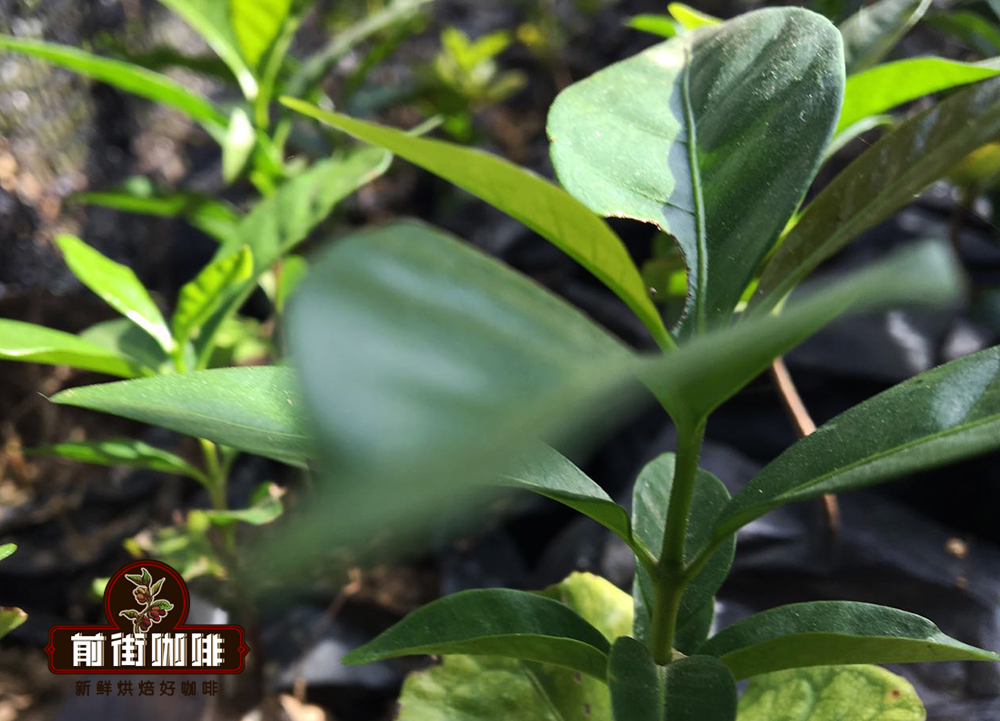
About a few years ago, Yunnan coffee has not become a boutique coffee, the big reason is that Kadim is so cheap that it can only be sold as a whole, and the 1KG is about 15-20 yuan. The price is difficult to cover the cost of planting: Labor and fertilizer. So farmers are unwilling to take care of coffee trees.
Another thing is that Yunnan coffee is often used to make instant coffee. This has led to the reputation of Yunnan coffee, which has not been very good.
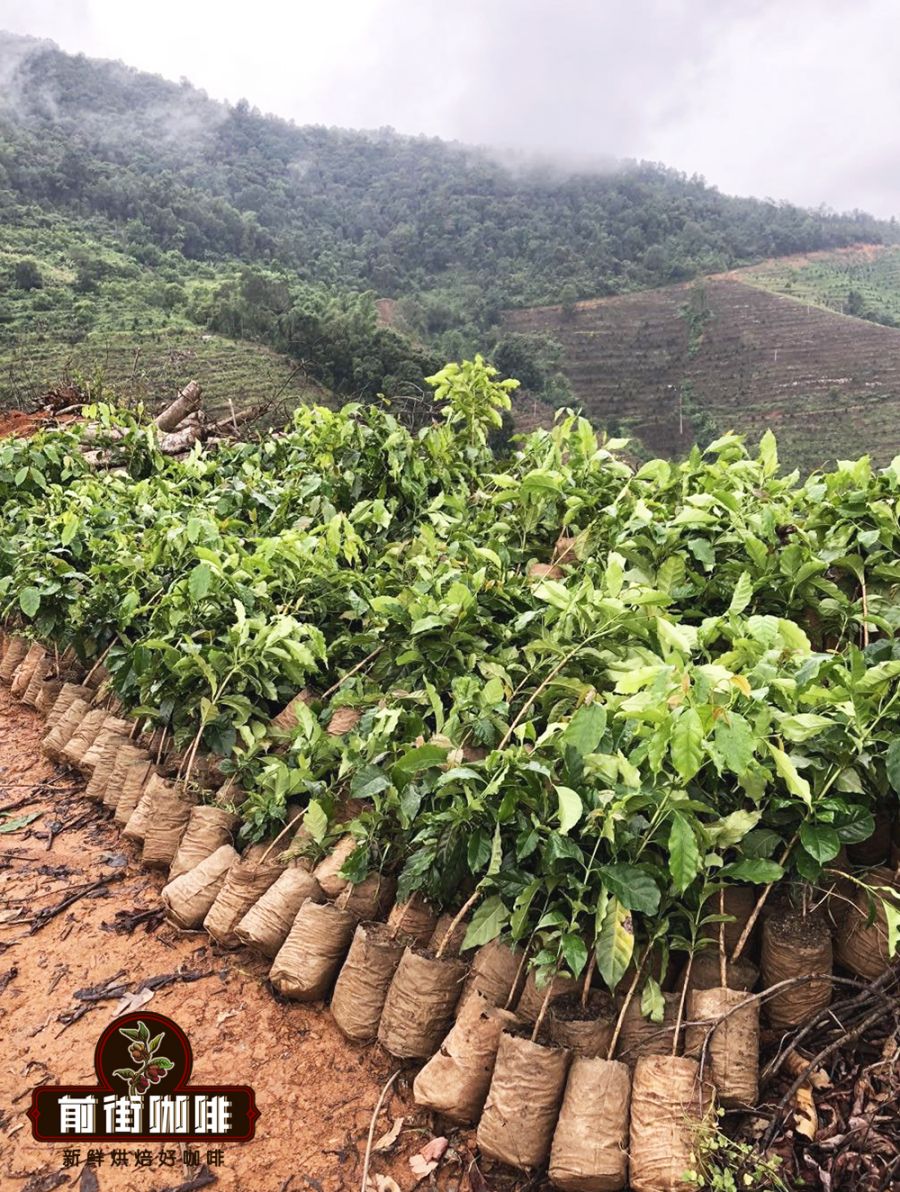
Yunnan small Coffee beans (Katim)
About three years ago, Qianjie Coffee also cited Katim (small grains Coffee) in Baoshan, Yunnan Province, and made Yunnan small grain coffee rations coffee beans, which also have the characteristics of Yunnan coffee beans.
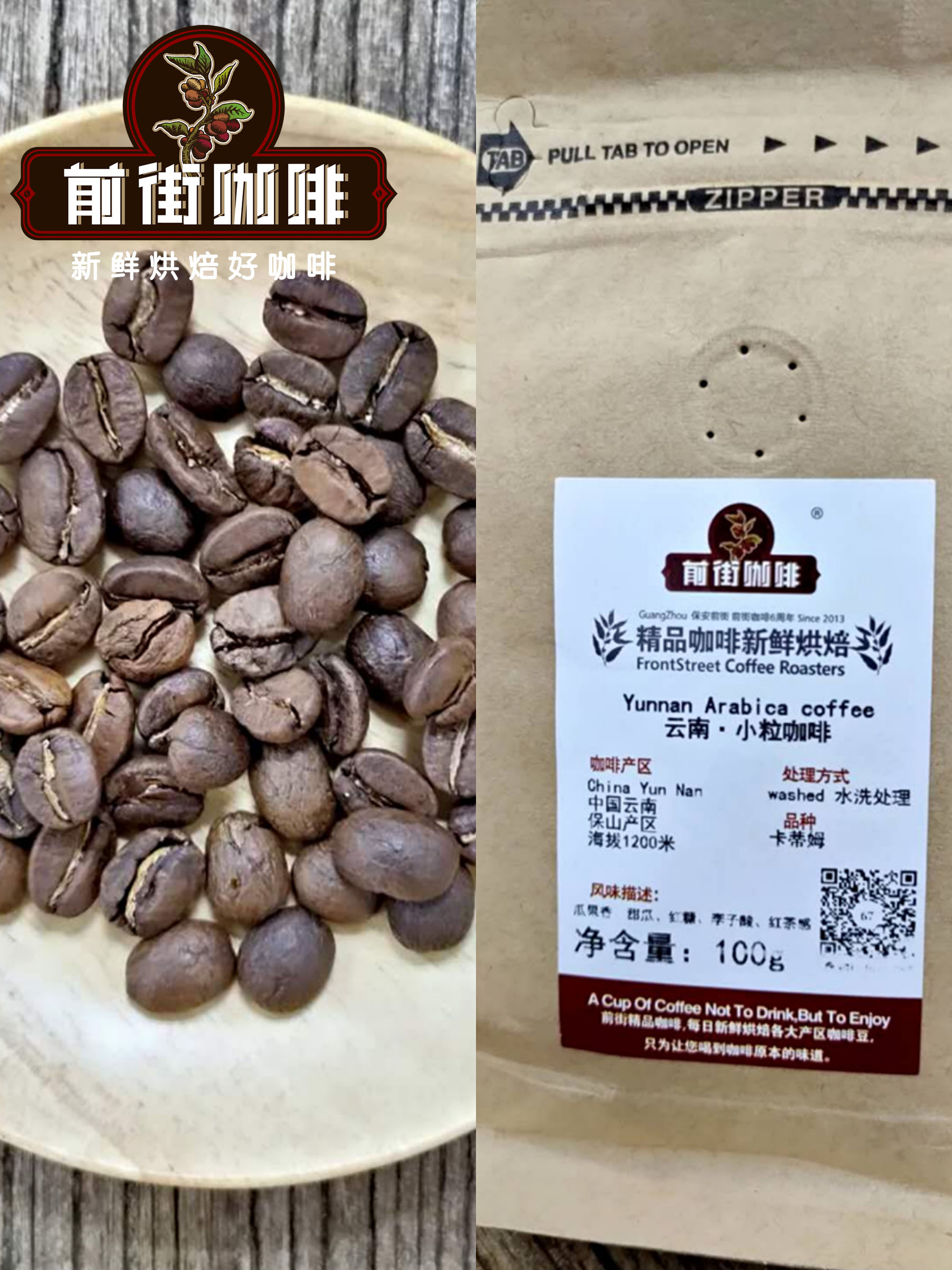
Qianjie Coffee Yunnan small Coffee beans
Producing area: Baoshan, Yunnan
Altitude: 1200m
Treatment method: washing
Variety: Katim
Baking record of Yunnan small Coffee beans in Qianjie Coffee
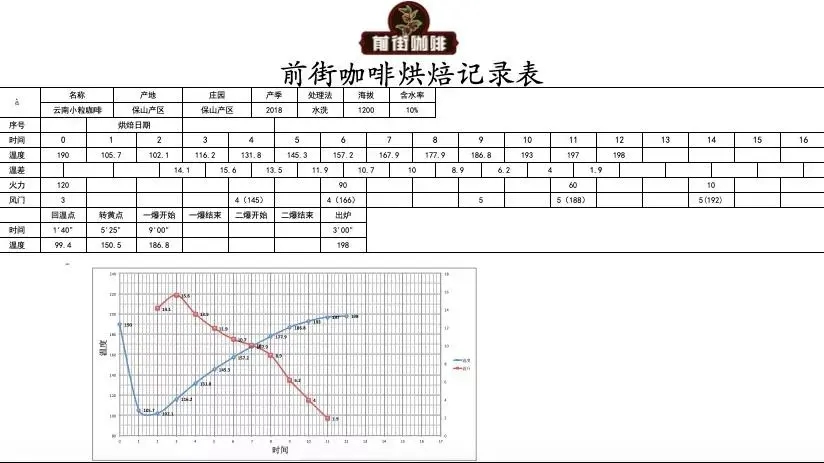
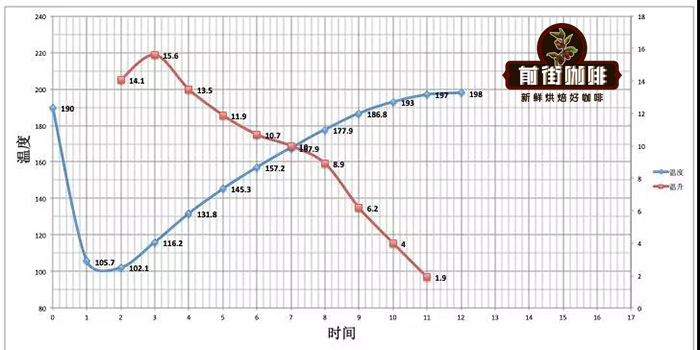
The furnace temperature is 190 ℃, the firepower is 120, and the throttle is set at 3; the temperature recovery point is 1 ", and the throttle is opened to 4 at 145℃, and the firepower remains unchanged; when the furnace temperature is 166℃, the bean watch turns yellow, the grass smell disappears completely, and enters the dehydration stage. When the furnace temperature reaches 188℃, the firepower is adjusted to 60 ℃, and the throttle is 5. The smell of toast obviously changes to the smell of coffee, which can be defined as a prelude to an explosion. At this time, it is necessary to listen clearly to the sound of the explosion point. When the sound of the explosion point begins to explode, the throttle will remain unchanged. After an explosion, the development will take place for 3 minutes, and 198 ℃ will be put into the pot.
Qianjie Coffee Yunnan small Coffee Bean Cup Test results
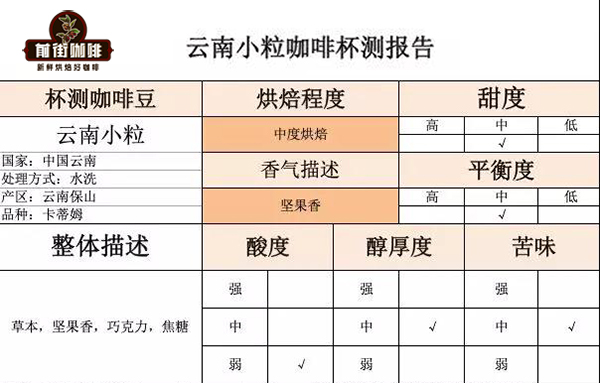
The entrance is supple, the aroma of Asian herbs is lively and bright, the cheeks are lively and bright, the cheeks are sour, mellow and balanced, the layers are rich, and the flavors of dark chocolate, honey and sucrose are obvious. After complete cooling, brown sugar flavor.
Yunnan iron pickup coffee beans
About 5-6 years ago, Qianjie Coffee began to quote the iron pickup card in Baoshan, Yunnan Province, and made it into a representative of Yunnan coffee beans-Yunnan Huaguoshan coffee beans.
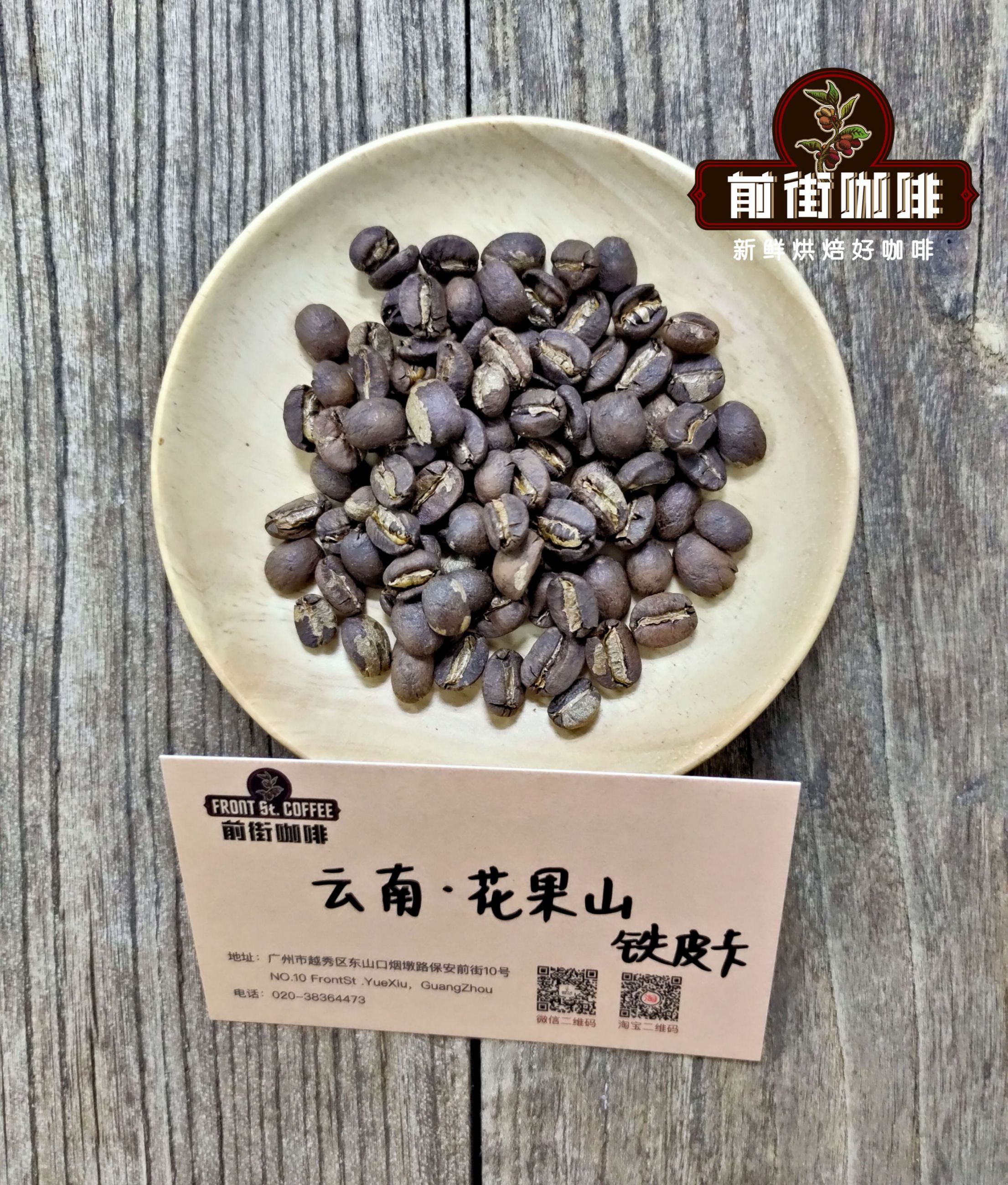
Qianjie coffee Yunnan Huaguoshan coffee beans
Coffee producing area: Baoshan
Variety of coffee: iron pickup
Altitude: 1200m
Grade: AA
Treatment: washing
Roasting record of Yunnan Huaguoshan coffee beans in Qianjie Coffee
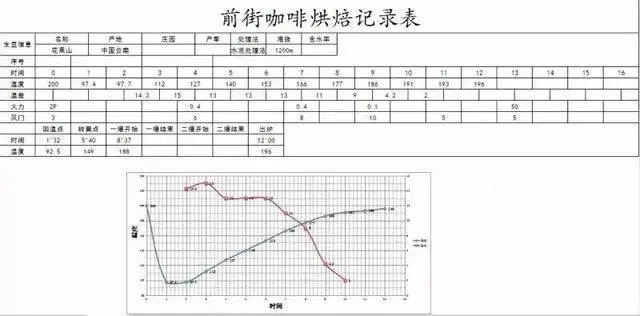
The moisture content of beans is 10.9%, so the baking plan is to put 200 degrees into the beans, then fire the small throttle to speed up dehydration, and open the stroke door and medium heat at the end of the dehydration stage so that Maillard's reaction time is not too hasty and will be released in 3 minutes.
Temperature recovery point: 1 minute 32, 92.5 °c, yellowing point: 5 minutes 40 °c, 1 explosion: 8 minutes 59 seconds, 188.0 °c, development 3 minutes out of the oven: 12 minutes 39 °C
Qianjie Coffee Yunnan Huaguoshan Coffee Cup record
After baking for 12 hours, the cup shows rich aromas of fruit, melon, herbs, supple on the palate, mid-course nuts, milk chocolate, lively and bright sour plums at the end, good balance on both cheeks, medium body full, sweet and sour first, apricot, citrus sour, aftertaste black tea, a little brown sugar.
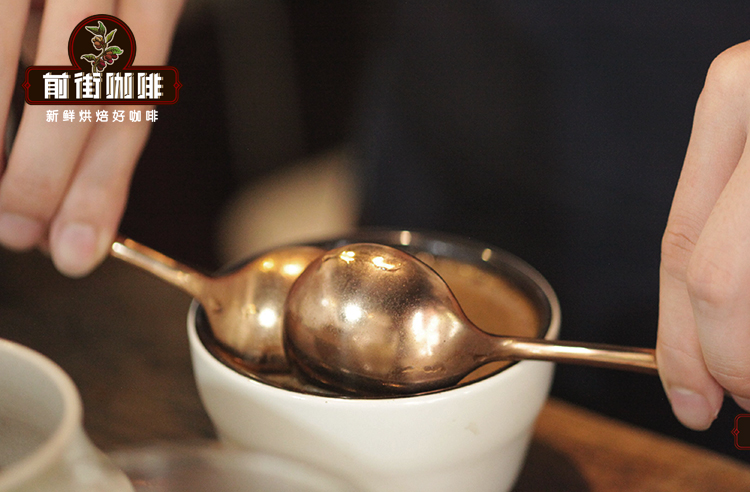
Qianjie Coffee Yunnan small Coffee Bean, Yunnan Huaguoshan Coffee Bean brewing experience sharing
Qianjie coffee is recommended to be brewed with V60 filter cup. Because the mouth of the V60 cup is relatively large, coupled with its unique spiral curve ribs, the air can be discharged more easily and the extraction quality can be improved. The taste may not be thick enough, but its high concentration brings out the acidity and obvious aroma of Yunnan coffee is one of its major features.
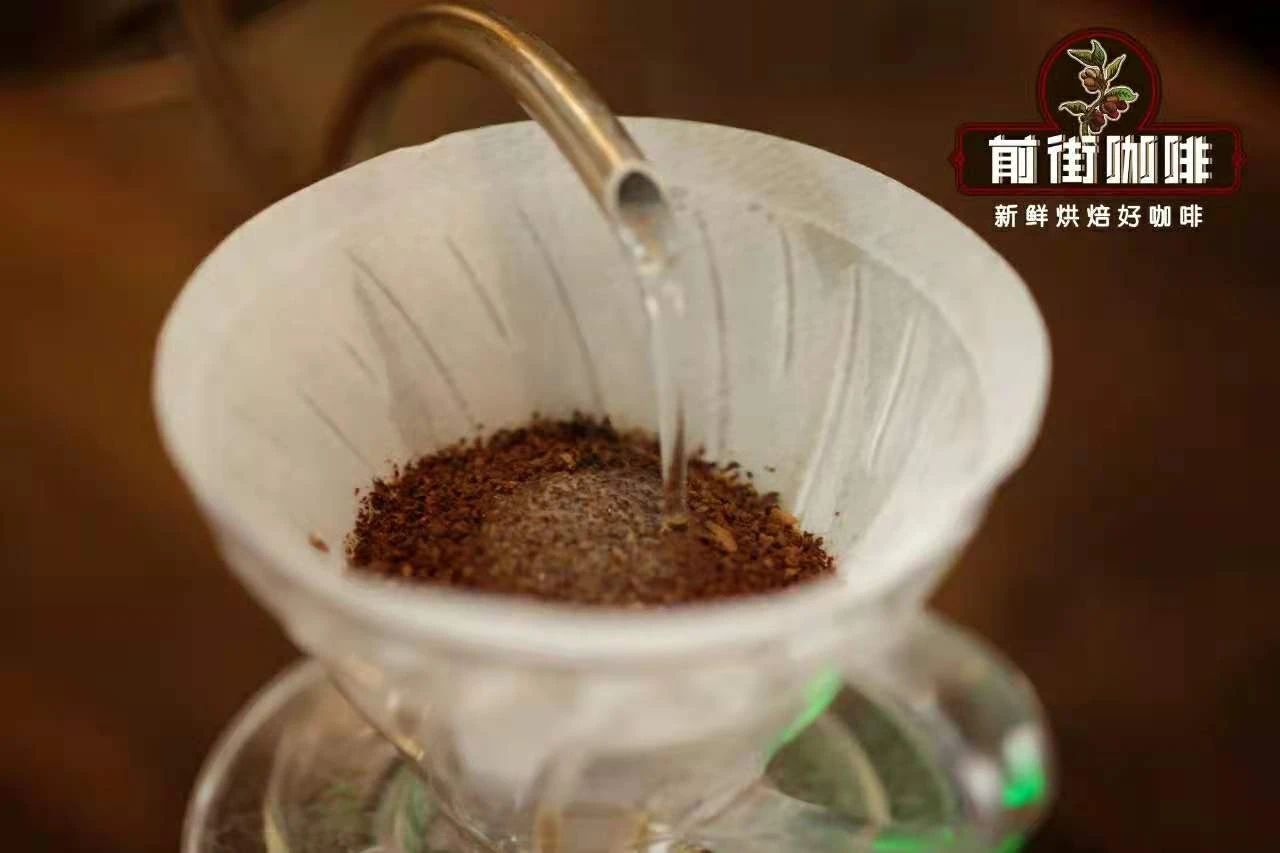
Filter cup: V60 # 01
Water temperature: 90-92 ℃
Powder / water ratio: 1:15
Degree of grinding: medium and fine grinding, that is, the thickness of fine sugar (57% of the pass rate of Chinese standard No. 20 screen)
Flushing and cooking technique: segmented extraction. 30 grams of water is steamed for 30 seconds, small water is injected around the circle to 124 grams, the water level is about to be exposed when the powder bed is about to be exposed, continue to inject water to 227 grams to stop water injection, and the filter cup is removed when the water level is about to be exposed to the powder bed, and the extraction time is 2 minutes.
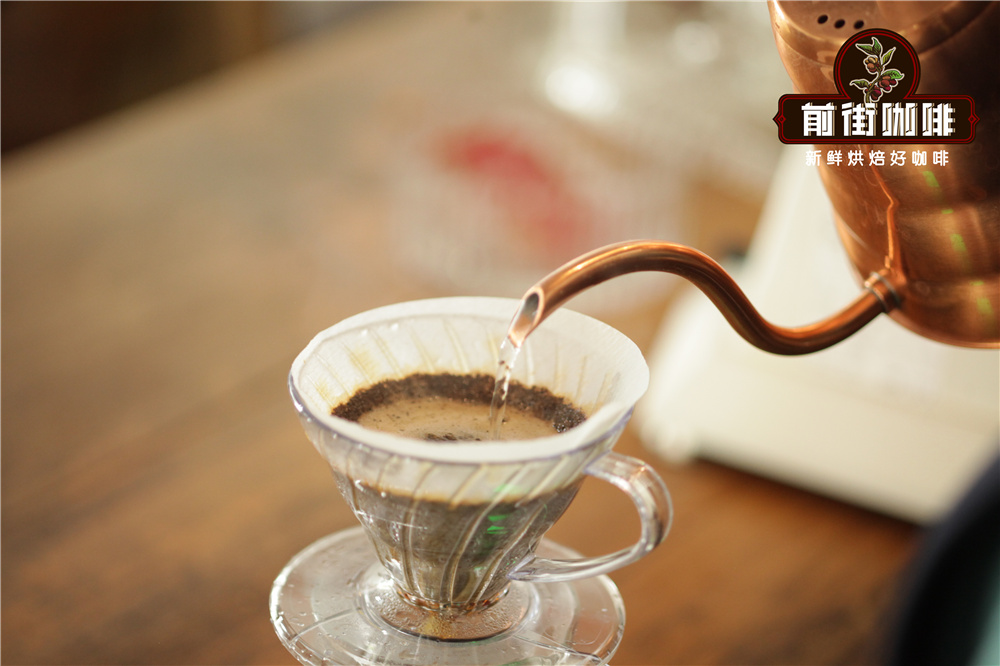
Qianjie Coffee Flavor description of Yunnan small Coffee beans
It smells nutty, with herbs, chocolate and caramel in the mouth, with a hint of acidity in the finish.
Qianjie Coffee description of Yunnan Huaguoshan Coffee Bean Flavor
The dry aroma has a hint of citrus acidity and nutty aromas. it tastes like plum, citrus acidity and nutty flavors, sweet melons and brown sugar, with a hint of black tea in the finish. The overall flavor level is relatively rich.
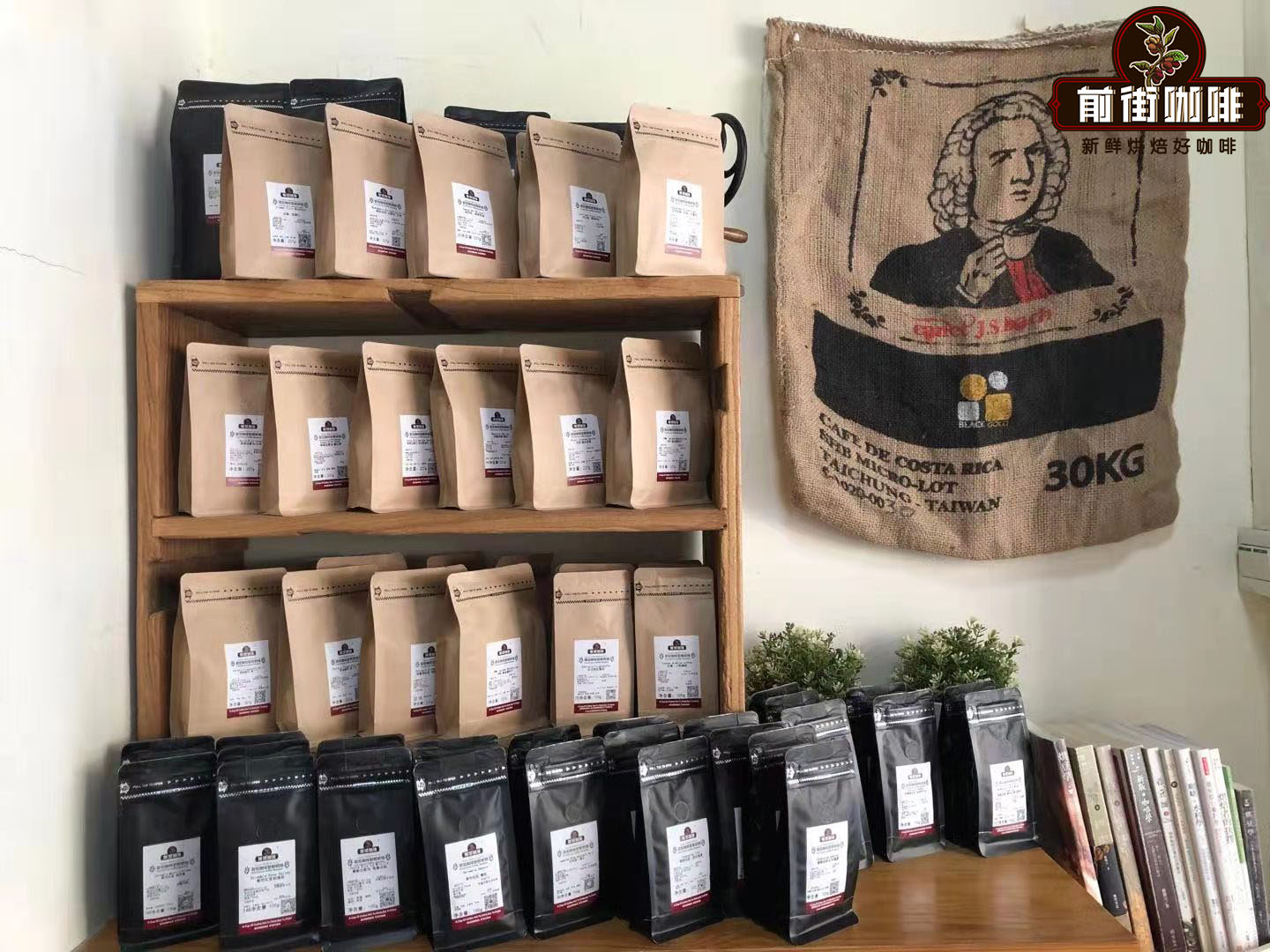
For more information about coffee beans, please follow the coffee workshop (Wechat official account cafe_style)
For professional coffee knowledge exchange, please add WeChat kaixinguoguo0925.
Important Notice :
前街咖啡 FrontStreet Coffee has moved to new addredd:
FrontStreet Coffee Address: 315,Donghua East Road,GuangZhou
Tel:020 38364473
- Prev
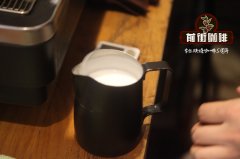
Can Starbucks' coffee with a price of tens of yuan benefit Yunnan farmers?
Professional coffee knowledge exchange more coffee bean information Please follow the coffee workshop (Wechat official account cafe_style) in Shanghai, coffee shops represented by Starbucks are all over the streets. But I'm afraid few people know that a considerable part of Starbucks' coffee beans are purchased from Yunnan. In fact, Yunnan has a history of growing coffee for nearly a hundred years, which is produced in Dali Prefecture.
- Next

I can't live without coffee! This rare genetic disease can only be saved by coffee.
Professional Coffee knowledge Exchange more information on coffee beans Please follow the coffee workshop (Wechat official account cafe_style) for many people who always need a cup of coffee in their lives, they may laugh and say that they can't live without coffee, but for the 11-year-old French boy, this is no joke. The whole thing started with a sick child who drank two cups of coffee every day.
Related
- Can I make coffee a second time in an Italian hand-brewed mocha pot? Why can't coffee be brewed several times like tea leaves?
- Hand-brewed coffee flows with a knife and a tornado. How to brew it? What is the proportion of grinding water and water temperature divided into?
- What is the difference between Indonesian Sumatra Mantinin coffee and gold Mantinin? How to distinguish between real and fake golden Mantelin coffee?
- What does bypass mean in coffee? Why can hand-brewed coffee and water make it better?
- Unexpected! Ruixing Telunsu lattes use a smoothie machine to foam milk?!
- % Arabia's first store in Henan opens into the village?! Netizen: Thought it was P's
- Does an authentic standard mocha coffee recipe use chocolate sauce or powder? Mocha Latte/Dirty Coffee/Salty Mocha Coffee Recipe Share!
- What is the difference between Vietnam egg coffee and Norway egg coffee? Hand-brewed single product coffee filter paper filter cloth filter flat solution!
- What is the difference between sun-cured and honey-treated coffee? What are the differences in the flavor characteristics of sun-honey coffee?
- How to make Italian latte! How much milk does a standard latte use/what should the ratio of coffee to milk be?

